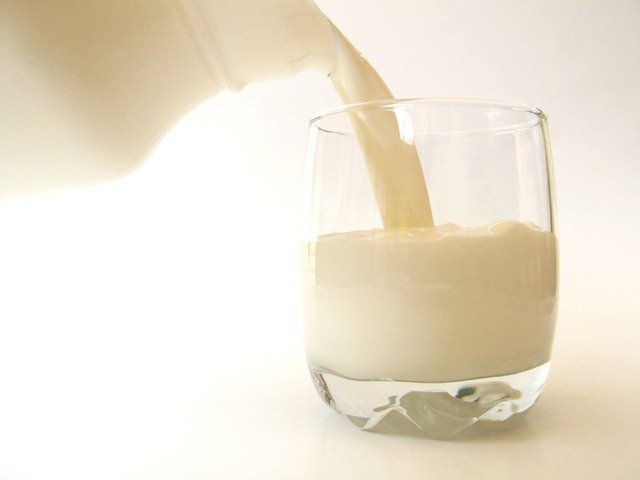
Are there Antibiotic in Milk?
Many people are worried that there are antibiotics in their milk. It’s an important issue, and I can understand peoples fear. If you continually take antibiotics, you can build immunity, and the antibiotic’s effectiveness goes down significantly. That’s why it is imperative that there cannot be antibiotics in our milk, so we can use antibiotics when we need them!
I decided to write this to help people understand the measures we take on our dairy to ensure a high quality product. I can say confidently that there are no antibiotics in any milk because it’s illegal for antibiotics to be in the milk.
Selling Antibiotics in milk is Illegal
In fact, it is illegal to have antibiotics in the milk! Every milk truck that leaves our dairy is tested to ensure there are no antibiotics in the milk. Then when the milk gets to the milk processing plant, the milk is checked again to ensure there are no antibiotics in the milk. If milk is contaminated with antibiotics, the entire load must be thrown away.
Dairies that send milk to their creamery with antibiotics are penalized, and if milk is sent with antibiotics more than 3 times, the dairy can lose their license to produce milk. This ensures that dairies make it a priority to make sure no milk they are sending has antibiotics.
On our Dairy
The “Hospital” Pen
Besides losing our license to produce milk, we also suffer financially if antibiotics get in the milk. Milk with antibiotics MUST be dumped, and that’s milk that we don’t get paid for. Because of all the negative consequences of having antibiotics in the milk, we have set up strict quality control measures to make sure our milk remains antibiotic free.
We use antibiotics on our farm to help our animals recover when they get sick. When the cows and calves get sick, we have a few different antibiotics on hand that can be administered to help them feel better.
When a cow is diagnosed with an illness, she is moved to the hospital pen, and separated from the rest of the herd. Yes, there is a hospital at our dairy! The cow is then given the appropriate medicine. Our veterinarian also comes once a week to diagnose certain animals, and prescribe treatment.
All of the sick cows receiving treatment are separated from the rest of their herd mates and milked in a different milk barn.
On our dairy, we have 2 milk barns; the old barn my grandpa started with, and our newer barn we built later. So all of the sick cows get milked in the old barn, and all of the milk from the sick cows gets thrown away. It’s a great way for us to keep these two groups separate. All of the milking equipment and milk pipelines are separate from the barn where we milk all of our healthy cows.

**My Sister Entering Health Records Into the Computer**
When cows are treated, we document the treatment in our computer records. When the cows are better and ready to move back with the rest of their friends, we hold them a bit longer in the hospital pen. Some antibiotics when given to the cow can be transmitted into the milk, so each antibiotic has a withholding period. The withholding time is the amount of time needed before there is no drug residue in the milk.
After the cows is better, and they have been in the hospital long enough to have no drug residue in the milk, we move them out. But when we move them out, we use an antibiotic test that checks the milk for antibiotics. If the test is positive for drug residue, the cows must stay in the hospital pen. Only when we get a negative test for antibiotics do we move them out of the hospital.
Good record keeping can keep antibiotics from getting into the milk, but we use the antibiotic test as well to make sure we didn’t make a mistake! It’s basic quality control.
At the Creamery
All milk when it arrives at the creamery MUST be tested for antibiotics. It is mandated by law that each truckload must be tested for antibiotics. If antibiotics are detected in any truckload of milk, the milk must be dumped.
Besides antibiotics in the milk being illegal, processors have motivation to have antibiotic free milk. When making cheese, yogurt, and other cultured dairy products, the bacteria culture that makes the products can be inhibited from growing. If the bacteria don’t grow, you can’t make cheese, yogurt, or other dairy products! Because of this fact, cheese makers and other dairy processors are vigilant in keeping antibiotics out of the milk.
Organic vs. Conventional
When people talk about the differences between organic and conventional dairy farming, many people feel that organic is a “healthier choice” because no antibiotics are used on the organic dairy. But conventional dairies do produce milk without antibiotics too; it’s just a difference of management practices.
Organic dairy farms are prohibited from using antibiotics on their farms. I feel that organic dairies are very cruel towards the animals in this way as there is medicine to help ease their suffering and help them recover faster. Withholding antibiotics from the sick animals only prolongs suffering and can even result in death if they are not treated.
Put it this way, you get sick and the doctor tells you he has the cure, and you could be better in a few days if he gives it to you. But the doctor notes that you’re at a different hospital that believes everyone else in the world would be better off if you didn’t take the antibiotics, so they won’t let you take the medicine.
Not administering any antibiotics is a way to prevent any antibiotics from getting into your milk, but you can use antibiotics responsibly on dairy cows and not have any antibiotics in the milk as well.
I am not against organic dairies; in fact I have many friends who have organic dairies. But people must remember that organic milk is not necessarily better for you; it’s just a difference of management practices that are being used on the dairies.
Bottom Line
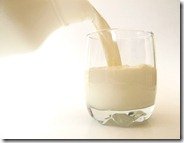 Three take facts to take away: antibiotics are used to keep cows healthy, antibiotics can be used responsibly, and they are kept out of the milk we drink. Consumers can rest assured knowing that dairies take pride in producing high quality milk that is free of antibiotics.
Three take facts to take away: antibiotics are used to keep cows healthy, antibiotics can be used responsibly, and they are kept out of the milk we drink. Consumers can rest assured knowing that dairies take pride in producing high quality milk that is free of antibiotics.
It is illegal for dairies to have antibiotics in the milk, and this coupled with the potential financial loss of having antibiotics in the milk makes it a priority for dairymen to keep contaminates such as antibiotics out of the milk.
On our dairy, we have put into place a various quality control measures to make sure we do not have any antibiotics in our milk (i.e. separate pen, computer records, and antibiotics test), and many other dairies have the exact same controls in place.
It’s important that antibiotics don’t get in the milk, and we all can agree on this. But it’s also important that people understand the management practices we have put into place to keep antibiotics out of the milk at the dairy. I hope that this posting gives milk drinkers everywhere more insight to what we do at the dairy, and the pride we take in producing milk that is guaranteed antibiotic-free!

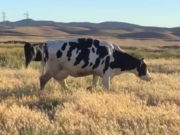
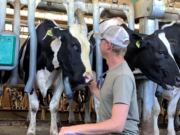
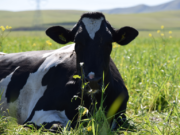
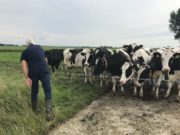



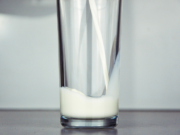




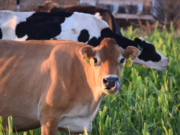
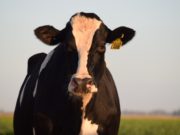
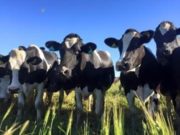

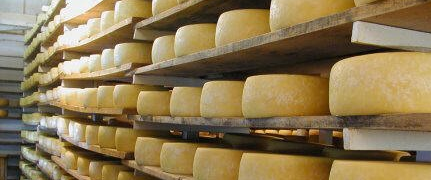

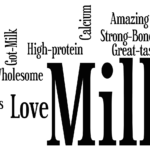
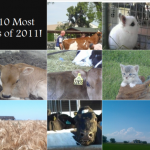

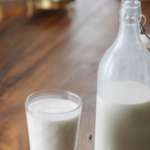
Great blog. Being in a dairy family, myself, I know it is SO important to get the correct information out there. It’s amazing to me what people still believe! Good job, nicely written.
Great info!
Your site is amazing! You have tons of great information!!!
What a great article I am going to print it out to hand to my customers. We own a small dairy in Wildomar ca and we do everything, milk the cows. process the milk and sell it from our store. My grandfather came from Holland and started the dairy in 1958 with 7 kids and 1 cow.I do tours for the public and some of the crazy ideas people have on what we do to our milk. You are doing a great job on properlly educating people.
Thanks,
Dana DeJong
Hi Dana,
Thanks for the encouragement! Thats cool that you do your own processing on your dairy. Hopefully someday we can get something going on our dairy, thats my goal anyways.
It sounds like your families story is pretty similar to my families. My opa came from Holland in the 50’s too, and started working on other dairies. After awhile was able to start milking his own cows, and slowly built our operation to its current size.
Yes, i’ve found there is a lot of misinformation on the web so hopefully my blog can help correct the information out there. I can’t believe that people actually believe that there is antibiotics in their milk, especially since its illegal. I am still supprised that this has been my number one blog posting!
I think your a way abo ve average dairyman, I alos wish you would not say milkis tested at the palnt ( which ist is) and therefore free of antibiotics. It is only tested for 4 of 6 beta lactams ( penicillin group) it is not tested for sulfa drugs, tetracyclines, aminoglycosides etc nor is it check for the NSAID Flunixin With over 80 drugs availabe to a dairyperson only 4 ar echecked for?? Thas kind of weird
Ralph, thanks for commenting on my blog. I really do appreciate the feedback.
I disagree with you though, we are an average dairy, and many other dairies have the same protocols in place to protect their milk from being contaminated by antibiotics. I know because I have visited many other dairies, and talked with them about management practices they use.
You can say you wish I didn’t say milk is tested at the plant, but it doesn’t change the truth. Milk is tested at the dairy plant and is required by law to be tested. It is illegal to ship milk from the farm that has been contaminated with antibiotics. The creameries also test the milk because it’s in their best interest. You can’t make cheese and other dairy products from milk contaminated with antibiotics. The cheese cultures or bacteria won’t grow in contaminated milk.
You make a good point though. The milk test on our dairy only tests for beta-lactam drugs or the penicillin group of antibiotics. But there are other tests available to test for the other drug groups. These other tests are used at the creameries though.
As I mentioned in this article, different antibiotics have different withholding periods. Penicillin’s stay in the cows system the longest so testing for only beta-lactam drugs works because other drugs are out of the cows system before the penicillin. Also testing beta-lactam type antibiotics isn’t just testing for 4 different drugs, but in fact it covers all penicillin type medicines. Penicillin is the most common type of antibiotic.
You make it sound like dairy farms are shooting their cows up with many different antibiotics, but that’s really not the case. Antibiotics at the farm level are heavily regulated, probably much more so than drugs for human use. In order to purchase antibiotics, you must have a script from your veterinarian so you can’t just go out and purchase large quantities. Then many drugs are restricted to veterinarian use only. Also just because drugs are available does not necessarily mean they are being used. You listed aminoglycosides and they are not even being used.
To be honest, it’s really in our best interest to use the least amount of antibiotics on the dairy as possible. Drugs are ridiculously expensive, and I’m sure you’ve noticed this when you buy medicine at the pharmacy. On our dairy, we only use a handful of different medicines, and only use them when absolutely necessary.
Antibiotics are necessary to treat sick animals, and it’s inhumane not to use modern technology to help alleviate their suffering and help get them better. But I can assure you, dairies are being responsible and sensible when it comes to using antibiotics on the dairy. I hope this clears up your confusion Ralph!
I grew up in rural upstate NY and I went to school with kids who grew up on dairies. I refuse to buy organic milk because I believe that it is cruel and inhumane not to use modern technology to relieve suffering. I refuse to buy milk from dairies that claim to use homeopathic remedies to treat their animals, because homeopathic remedies are placebos. Dairies that use homeopathic remedies to treat their animals when there are affordable and effective conventional treatments available are engaging in cruel an inhumane practices. I strongly agree with you that nearly all dairies that use antibiotics are using them sensibly, responsibly and under the supervision of a vet and that dairy operators favor safe and effective non antibiotic treatments (homeopathic treatment is not safe nor is it effective) over antibiotic treatments.
I now live in the Greater Boston Area. I live in an area with a lot of New Age / Yoga Nutheads and antivax crazies. They buy their food at Whole foods / Whole Paycheck. Even though most of my friends are not New Age / Yoga Nutheads, they believe some of the myths these crazy people are spouting. The problem is that the myths make sense to people who have never, ever, worked with animals and whose parents and grandparents never, ever worked with animals or seriously grew their own food. When I try to talk to them about the reality of family ag business, they treat me as if I’m a shill for big ag business. I’m 53 years old. I still show at the county and state fairs. My neighbors laugh at me because I still do this. If we have a really nasty depression, I’ll have the last laugh, because I’ll be eating my own food, canning what I don’t need and selling / trading what I make for things I need. I can still swing a hammer, sew my clothes and keep my place in good repair. Country folk know how to survive–even when country folk have to move to the big city.
I’m glad sensible people like yourself still exist in the world lol thanks for sharing
Ilove dairy folk. I grew up on a dairy but the milk marketing coops are perpetrating a great hoax on milk consumers. Milk is not antibiotic free, no one can say that as it is not tested for other than 4 of 6 beta lactams. (the penicilllin group) There are many drugs not tested for , such as tetracyclines, sulfonomides, flunixin, macrolides, aminoglycosides etc.
Please see http://www.idfa.org, then NEWS AND VIEWS THEN, HEADLINE news. look at the two articles 3 pages into the great number of articles dated January 13th & JNUARY 7 Note the links to FDA and the obtuseness of the northeast Ag commissioners. This does not do a good dairyman any favors. Good dairymen like you are needed the poor ones should go because they give you a very bad name.
Bill,
If you grew up on a dairy farm, you should understand that there aren’t antibiotics in milk. Its illegal and the milk is thoroughly tested for antibiotic contamination. Many drugs including Tetracyclines are not used on lactating cows (cows that are producing milk).
I agree with you though Bill on your last point. Bad dairy farmers can damage the trust that consumers place in us producing their food so it’s good that they are forced out. Fortunately there are economic repercussions for farms that are not operating ethically though so they will not be in business for long.
For example, if a dairy farm is being run poorly and neglects monitoring milk quality and antibiotics do end up in the milk, the dairy processing plant will discover the contamination and dump the entire truckload of milk. In addition, this contamination event will be reported to the California Department of Food and Agriculture, CDFA, which will go on their record. So the operation will not be paid for an entire truckload of milk, and if antibiotic contamination is discovered 2 more times CDFA will take away their license to produce milk. So essentially they will lose money and be shut down if they continue their neglect.
Thanks for the comment!
Why is everyone so concerned with antibiotics in the milk? Honestly why would a dairy man want to put antiobiotics in the milk what purpose would it serve. When we humans get sick we go to the doctors and get medicine so we are not in pain and can get better. If one of our cows is sick we give it medicine to get better and you milk it in a separate tank and you dispose of the milk. Common sense, you think we won’t pour out that little bit of milk because it is going to make us so much money. It’s not worth the price you will pay if you get caught with antibiotics in your milk. Im sure you can find plenty of other things people do to our food supply than worrying about antiobiotics in your milk cause there is none.
I have spent time on dairy farms. They owners of which were very kind and gentle people who cared greatly about the well being of their cows. When I asked about how they maintain their animals’ health the responded adamantly that they used no antibiotics because they are not allowed in milk. In stead the said they treated sick animals with Naxcel which was said to be, “like an antibiotic, but not an antibiotic.” Saying it has no milk discard period required after its use.
The FDA does not want antibiotics used on dairy animals because they want to prevent bacteria in the milk from developing resistances. Antibiotic resistant diseases pose a threat to human health. So the antibiotics that were banned are human antibiotics.
Antibiotics can be used on milking dairy cows as long as the antibiotics are designated never to be used on humans. This is where Naxcel (Ceftiofur Sodium) fits in. It is an antibiotic that is for animal use only. So it can legally be used on dairy cows and it is contained in milk.
This information cam from a website for veterinarians http://www.drugs.com/vet/naxcel.html
Don, Thanks for your comment. I think you’re right on that. Most dairies are moving towards eliminating antibiotics all together, or using alternative options like the one you mentioned
I’ve just come here looking to see if, on a one time basis, (or at least not frequently) could someone with access to a contaminated vat of milk use some of that milk for personal cooking? (say, a litre?) And specifically cooking, not drinking raw milk. Do antibiotics cook out?
It would depend on how you define contaminated. I don’t recommend drinking contaminated milk at all. Antibiotics don’t cook out, so if you do have some milk contaminated with antibiotics, you should dump it
It’s not antibiotics in milk that causes concern, it’s that dairy cows are being fed corn in many cases as there isn’t enough land to produce the amount of grass to sustain mass production, thus causing issues that require antibiotics to be given to cows. This is an issue more prevalent in some areas than others. People who don’t support the dairy industry would like to see less mass production and more local produce. In saying that, my information comes from a variety of sources and if this is not the case and cows in the UK are being fed on grass then I’m more than happy to hear about it. However I know that there are ranges in the UK that do feed their cows corn. There is also the disturbing fact that some of that corn could be genetically modified. It is good to know that the milk is leaving dairies antibiotic free and thank you for clearing that up. I am not sure if it is enough for me to start consuming dairy again, but I would be happier knowing the cows are cared for and not fed something that is unnatural to them.
Cows in Tasmania, Australia are fed on grass and hay as a rule. On one dairy farm (that I know about), they also get ‘thirds’ chocolate from a major chocolate factory too.
I wish it were the same in the US and UK. Thanks for your reply.
I wish it were the same in the US and UK. Thanks for your reply.
Great straight forward article, but the information about organic dairies is misleading and playing on emotional feelings- really, organic dairies are ‘cruel’?. Antibiotics are allowed for treating organic cows, but then the cows are removed from the herd and sold when they are better. Organic dairy’s primary goal is to take effective and proactive care of the animals so that antibiotics are NOT needed in the first place. There are very effective treatments with natural sources that are used, including herbs and tinctures, minerals etc. As an organic dairy, we have used antibiotics when our vet has felt that the natural remedies may not work in order to save a cow- it worked and she is happily living on a friend’s conventional dairy. We did not hesitate as we love our cows and want what is best for them. Organic farmers are prohibited from withholding treatment to preserve the ‘organic integrity’ of the cow- your article does not make this distinction.I think the biggest difference in organic dairy is that we do not routinely use ‘dry off’ treatments- which are antibiotics!- on every cow whether needed or not.
Bottom line is ALL dairy farmers have their cows’ best interests in mind each day, the management may be different, but we all have the goal of making good, fresh milk for our customers!
You’re right, all farmers care about their cows. My only point was that a strict no-antibiotic policy can be good to a point, but it is hard to manage when you are constrained by those rules. It’s not practical if you can use treatments, but then you need to sell her after because she was treated with medicine. That cow is still a good cow. Like anything, antibiotics are only a tool and should be used responsibly in the right circumstances. I agree, in most cases antibiotics are not needed, and vitamins and minerals actually do a much better job. We try to use natural ways as much as possible, because it is usually much cheaper and more effective.
This a great article, it let ignorant people like myself know dairy farmer’s Best Practices in responsible and safe administration of antibiotics to dairy cows in their time of need. Thank you for providing a much needed educational post!
Thank you, I am very glad to hear
Why does organic milk last longer? I have found at my local grocery store that sell both organic and regular milk, the dates ” use by…” For organic is much longer period of time, Longer shelf life and organic have options for refrigeration not needed until opened. Also, I have found that the regular milk seems to turn almost immediately upon opening or exposing to air and the organic options seem to taste fresh. At a time whenas the regular milk would be completely curdled, the organic still tastes fresh. Why is this?
Organic milk is pasteurized at a higher temperature called ultra-pasteurization – this gives it a longer shelf life than conventional which is processed at a lower temperature. It’s mostly done because there are fewer organic farms. It sometimes takes longer to travel from the farm to the store.
If the cow is on a antibiotic treatment, does it produce milk with antibiotics ? What about other medics like hormones ?
Yes, if you treat a cow some residue can get in the milk. So it is important to discard any milk from animals treated with antibiotics. It takes a few days for the antibiotic to be metabolized by her body, but after a few days the milk will be fine. To be sure, we test the milk to make sure there is no antibiotic residue in the milk before putting the treated cow back into the milking herd. The milk is tested several times throughout its journey to the store. Any milk testing positive will be dumped
Hello there, i work in dairy farm holsteins. I milk a first fresh cow then i directly transfer the milk into tank. And tomorrow pick up of milk. Please give me an advise thanks
We usually milk them for 2-3 days before adding their milk to the bulk tank